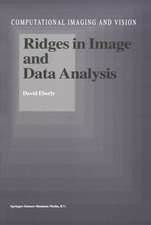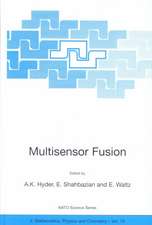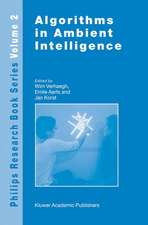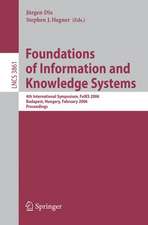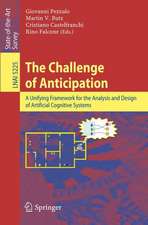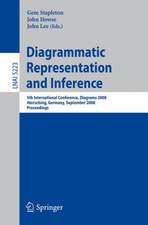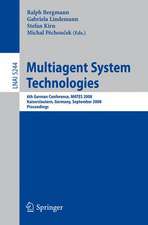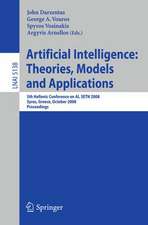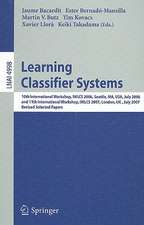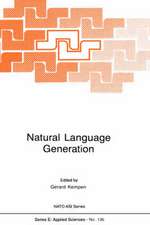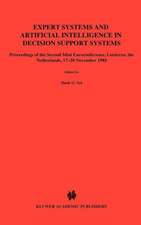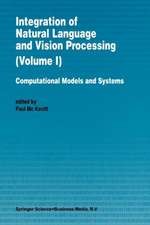Intelligent Help Systems for UNIX
Editat de Stephen J. Hegner, Paul Mc Kevitt, Peter Norvig, Robert L. Wilenskyen Limba Engleză Paperback – 23 oct 2012
Preț: 627.19 lei
Preț vechi: 783.99 lei
-20%
Puncte Express: 941
Preț estimativ în valută:
110.89€ • 130.86$ • 97.12£
110.89€ • 130.86$ • 97.12£
Carte tipărită la comandă
Livrare economică 13-27 aprilie
Specificații
ISBN-13: 9789401037907
ISBN-10: 9401037906
Pagini: 436
Ilustrații: XII, 420 p.
Dimensiuni: 160 x 240 x 23 mm
Greutate: 0.61 kg
Ediția:2000
Editura: SPRINGER NETHERLANDS
Colecția Springer
Locul publicării:Dordrecht, Netherlands
ISBN-10: 9401037906
Pagini: 436
Ilustrații: XII, 420 p.
Dimensiuni: 160 x 240 x 23 mm
Greutate: 0.61 kg
Ediția:2000
Editura: SPRINGER NETHERLANDS
Colecția Springer
Locul publicării:Dordrecht, Netherlands
Public țintă
ResearchCuprins
I: Computational Models and Systems.- Preface: Intelligent Help Systems for UNIX.- Editorial Part I: Intelligent Help Systems for UNIX: Computational Models and Systems.- An Intelligent Human-Computer Interface for Provision of On-Line Help.- Virtues and Problems of an Active Help System for UNIX.- The Berkeley UNIX Consultant Project.- The OSCON Operating System Consultant.- USCSH: An Active Intelligent Assistance System.- II: Planning and Knowledge Representation.- Editorial Part II: Intelligent Help Systems for UNIX: Planning and Knowledge Representation.- The SINIX Consultant - Towards a Theoretical Treatment of Plan Recognition.- Plan Realization for Complex Command Interaction in the UNIX Help Domain.- An Assumption-based Truth Maintenance System in Active Aid for UNIX Users.- What Do You Know about Mail? Knowledge Representation in the SINIX Consultant.- III: Natural Language Dialogue.- Editorial Part III: Intelligent Help Systems for UNIX: Natural Language Dialogue.- Planning Intelligent Responses in a Natural Language System.- Strategies for Expressing Concise, Helpful Answers.- Evaluating Plan Recognition Systems: Three Properties of a Good Explanation.- Representing UNIX Domain Metaphors.- Using Justification Patterns to Advise Novice UNIX Users.





